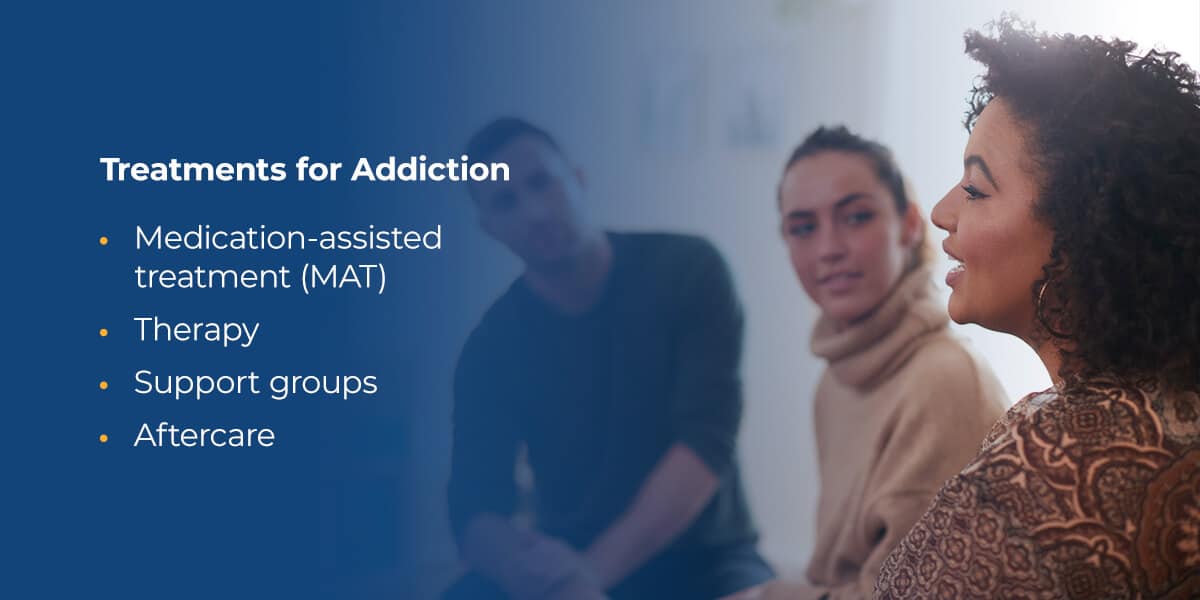
Addiction is when a person becomes dependent on one or more substances. Substance abuse alters the brain chemistry and affects a person’s reward center, motivation and memory. Once a person becomes dependent on a substance, they’ll crave it and experience a compulsion to use it. When addiction reaches this point, it becomes challenging for people to reach sobriety without outside assistance.
Understanding addiction as a disease is essential to ensure that you or a loved one can get the appropriate treatment. Learn more about what drug addiction is below and how you can get help for yourself or your loved one.
People can develop an addiction to various types of substances. Some of the most common substances people become addicted to include:
Many of these substances can alter the brain’s chemistry, causing a person to become dependent. Once someone forms a dependence, it’s easy to become addicted. Addiction can take over a person’s life. Without professional help, it can be challenging to reach sobriety.
People often start using substances in a recreational setting but can develop an addiction from misusing prescription medications. People who have a drug or alcohol addiction may face challenges, including:
People struggling with addiction will also experience varied symptoms depending on their substance use. Some of the symptoms you may be able to expect include:
These symptoms can be more severe if a person has been using substances for a long time. Once a person becomes physically and mentally dependent on a substance, ceasing use will cause different withdrawal symptoms, such as:
A person can successfully overcome withdrawal symptoms and achieve sobriety with professional help. Medication-assisted treatment is also available for individuals who experience more severe withdrawal symptoms or need help feeling more comfortable focusing on other parts of their treatment.
Risk factors for addiction vary for each person, and there is no single cause. One or multiple risk factors can cause a person to turn to alcohol or drugs, and the substance can alter their brain chemistry and cause them to become reliant on the drug. Some of the risk factors for addiction include:

If you’re struggling with addiction, you have options. You’ll work with an addiction specialist to create a personalized treatment plan, ensuring you get the level of care you need. The different types of treatment for addiction include:
When enrolling at an addiction treatment center, you’ll work with an addiction specialist to create a personalized treatment plan. Individualized care is essential to ensure you get to the root cause of your addiction, giving you the greatest chance for long-term sobriety.
If you’re struggling with addiction, you’re not alone. Millions of people worldwide battle with addiction, but professional help is available. Hope For Tomorrow is an addiction recovery center with the resources and tools needed to help you recover. We have different levels of care to treat various substance use disorders, and you’ll work with one of our addiction specialists to curate a unique treatment plan to help you reach sobriety.
Our staff will lift you up through your journey and do everything possible to ensure a long-term recovery. If you’re ready to leave substance use behind and overcome your addiction, contact us today to learn more about our programs or enroll.